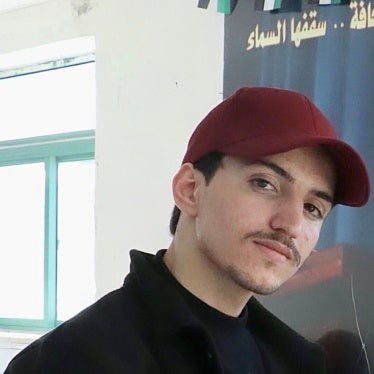Human Rights Watch is writing this open letter to you about a Tunisian man being held in a jail in al-Medina who in our view would be at risk of persecution and of torture if returned to Tunisia.
April 11, 2008
H.E. Prince Nayef bin Abd al-‘Aziz Al Sa’ud
Minister of Interior
PO Box 2933
Riyadh 11134
Saudi Arabia
Your Excellency:
Human Rights Watch is writing this open letter to you about a Tunisian man being held in a jail in al-Medina who in our view would be at risk of persecution and of torture if returned to Tunisia.
Saudi authorities arrested Moujahid Ben Khaled on December 8, 2007 in Mekka and have been holding him since then in custody. According to our information, there are no charges pending against Ben Khaled in Saudi Arabia, although it is possible he is being held on suspicion that he lacks a valid visa.
Ben Khaled left Tunisia legally on September 29, 2004 and entered Saudi Arabia on a pilgrim’s visa, according to his family. Once there, he tried unsuccessfully to enroll in the Islamic university in al-Medina al-Munawwira. Since then he had been trying to gain admission to a university program while pursuing religious studies privately, his family stated.
Tunisian police had repeatedly harassed Ben Khaled because of his religiosity and his beard, detaining and insulting him on several occasions but never formally arresting him or bringing him to trial, his family said. This harassment, they stated, was the main reason Ben Khaled decided to leave his studies at the University of Tunis and pursue them abroad.
Ben Khaled was born on August 31, 1983 and carries Tunisian national identity card 07096315, issued February 19, 2003.
Ben Khaled’s father, Khaled Ben Khaled, is a former prisoner, having been convicted three times in Tunisia during the 1990s of membership in an unlicensed Islamist organization. He lost his post at the Ministry of Agriculture in 1993 after his first conviction. Like many other former political prisoners, Khaled Ben Khaled was prevented from finding employment following his release. Authorities confiscated his passport in 1994 and his efforts to recover it have failed.
While Ben Khaled’s family says they know of no charges pending against Moujahid in Tunisia, they state that police regularly visit their home in Fouchana, near Tunis, most recently on April 2, to ask for news of Moujahid.
These police visits to the family home, Moujahid’s history of being harassed by the Tunisian police, and the likelihood that his arrest in Saudi Arabia would arouse the suspicions of Tunisian authorities, give Human Rights Watch reason to fear that Moujahid risks being mistreated if Saudi authorities were to return him to Tunisia.
Many human rights organizations, including Human Rights Watch, have documented that Tunisia persecutes persons involved in nonviolent opposition activities or who are suspected of having Islamist sympathies. Many such persons are subjected to torture under interrogation. The U.S. State Department County Reports on Human Rights Practices for 2007 states,
- according to human rights organizations, security forces tortured detainees to elicit confessions and discourage resistance. Reported abuses included sexual abuse; sleep deprivation; electric shock; submersion of the head in water; beatings with hands, sticks, and police batons; suspension, sometimes manacled, from cell doors and rods resulting in loss of consciousness; and cigarette burns….Consistent with an effort to extract information or coerce confessions, reports of torture were more frequently associated with the initial phases of interrogation/investigation and in pretrial detention centers more than prisons....Political prisoners, Islamists, and persons detained on terrorism-related charges allegedly received harsher treatment than other prisoners and detainees.
The Convention against Torture, of which Saudi Arabia is a signatory, states in Article 3, “No State Party shall expel, return ("refouler") or extradite a person to another State where there are substantial grounds for believing that he would be in danger of being subjected to torture.”
We therefore urge you not to return Ben Khaled to Tunisia against his wishes. If he has committed an offense in Saudi Arabia, he should be promptly charged and granted a fair trial. In any event, we urge you to allow him either to remain in Saudi Arabia, where he still hopes to pursue his studies, or to travel to a third country where he would not be at risk of persecution based on his religious practices or political beliefs.
We would welcome any information you can provide on the judicial status of Ben Khaled, along with assurances that he will not be sent to a country where he would be at risk of torture or persecution on the basis of political or religious beliefs.
We thank you for your consideration.
Sincerely yours,
/s/
Joe Stork
Director, Middle East & North Africa division
Human Rights Watch







